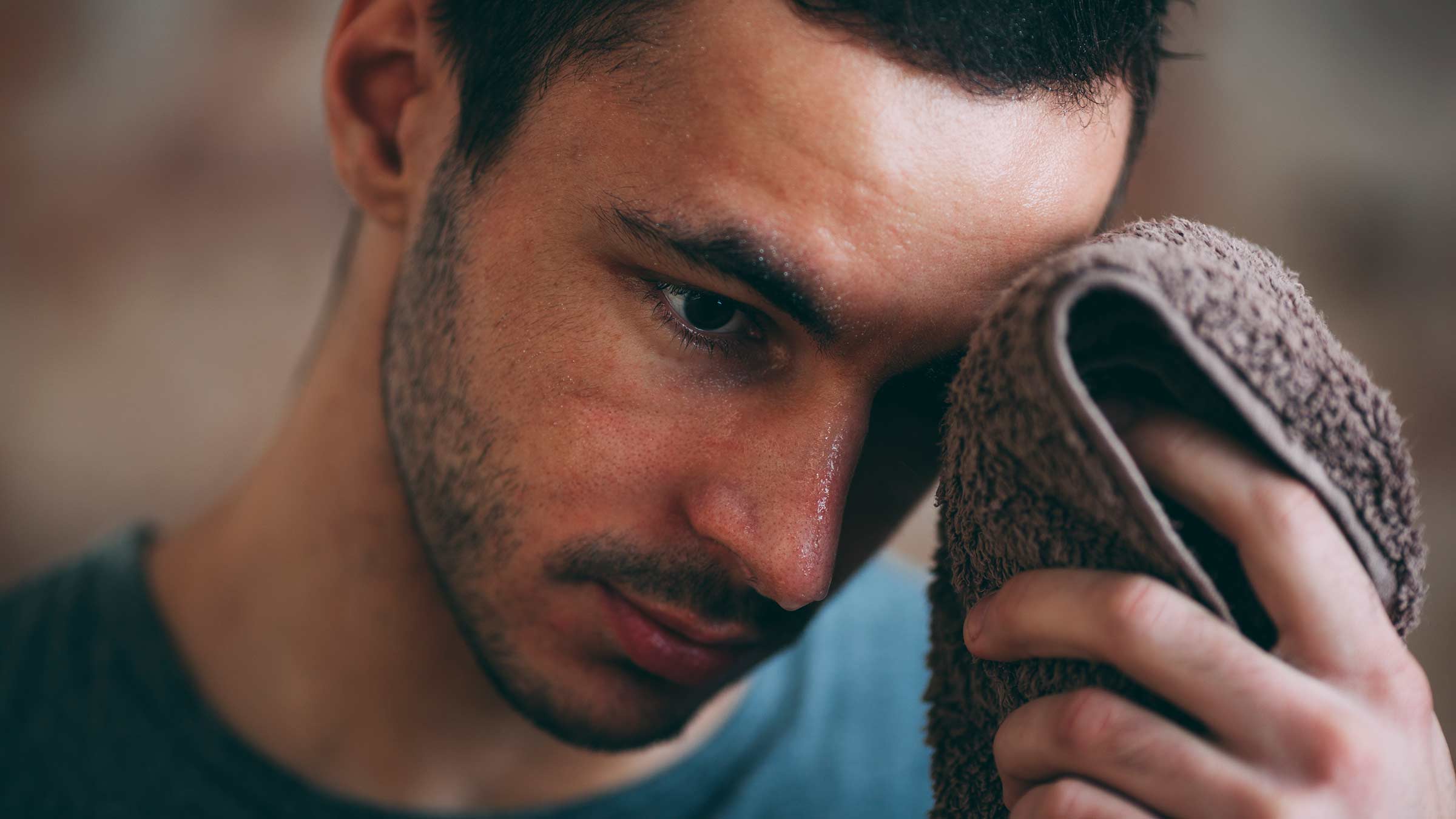
If you’ve ever suffered from excessive sweating, you know full well how this condition can be both a nuisance and an embarrassment.
Excessive sweating, or hyperhidrosis, can be defined as any amount of perspiration that occurs beyond what’s needed to cool your body, which is a normal physiological function.
How common is excessive sweating?
Excessive sweating affects an estimated 2 to 3% of people worldwide.
The most common areas where excessive sweating occurs are on your face, scalp, palms, armpits, soles of your feet, lower back, buttocks and inner thighs.
It’s important to note that excessive sweating has nothing to do with your personal hygiene. Bacteria on the skin’s surface causes odor from sweating. Body odor can occur in those who sweat a little bit or a lot. The quantity doesn’t matter.
Signs of excessive sweating
If you sweat a lot, you may experience sweat:
- soaking through clothing
- running down your face
- interfering with shaking a person’s hand due to clammy or wet palms
If you face these, it might be time to talk to your doctor. You don’t have to let excessive sweating interfere with your relationships or cause you embarrassment.
Causes of hyperhidrosis
A variety of underlying medical conditions can cause hyperhidrosis including:
- Endocrine disorders
- Neurologic conditions
- Infections
- Cancer
- Menopause
Some medications also can cause secondary hyperhidrosis.
Sweating due to these conditions is usually generalized. It’s important to see a board-certified dermatologist to exclude underlying causes and for a comprehensive management plan.
Sometimes there’s no specific cause, but heredity is often to blame.
What makes body odors strong
Men tend to have stronger body odor due to more body hair and apocrine glands.
You could have strong body odor when sweat from your apocrine glands mixes with bacteria on your skin. Apocrine sweat glands are mostly located in your armpits and genital areas. They produce the sticky kind of sweat compared to the sweat produced on say your forehead, which is clear and has no odor.
These factors cause body odor to be stronger:
- Diet
- Hormonal changes
- Genetics
- Wearing synthetic clothing
- Stress
- Not showering enough
- Medical conditions such as diabetes or liver disease
Body odors from sweat can differ
Some sweat smells worse than others, primarily due to the type of sweat gland involved and the interaction with skin bacteria.
Foods that intensify body odors from sweating include:
- Garlic
- Onions
- Red meat
- Cruciferous vegetables such as broccoli and cauliflower
- Spices can intensify body odor such as curry and cumin
Do fit people sweat more?
Yes, fit people tend to sweat more. As fitness improves, the body becomes more efficient at cooling itself, starting to sweat earlier and more profusely during exercise. This is a healthy adaptation and not a sign of poor fitness.
How much we drink affects how much we sweat. Hydration supports efficient sweat production and temperature regulation, and it prevents electrolyte imbalances that can impair performance.
Deodorants vs. antiperspirants
- Deodorants neutralize odor-causing bacteria. They may stop working due to bacterial adaptation, changes in body chemistry, or product buildup on the skin. Choosing a formula that matches your skin type and sweat profile is key.
- Antiperspirants use aluminum-based compounds to plug sweat ducts and reduce sweat output. They may fail if applied to wet skin or not used consistently.
Does sweating a lot mean you have heart problems?
Excessive sweating can be a warning sign of heart problems, especially when accompanied by:
- Chest pain
- Shortness of breath
- Nausea
- Fatigue
- Dizziness
Cold, clammy sweats without exertion may signal a heart attack or angina. Seek medical attention if sweating is sudden, unexplained or paired with other symptoms.
Treatments for excessive sweating
If you find that you’re sweating a lot and it’s happening beyond the normal triggers like heat or exercise, you don’t need to suffer through it. There are ways to treat and even prevent excessive sweating.
Use an over-the-counter aluminum-based antiperspirant daily. It’s important that it’s labeled antiperspirant and not just “deodorant.”
There are many products that you can buy over the counter that offer clinical-strength or prescription-strength antiperspirants.
If an over-the-counter remedy doesn’t help, visit a dermatologist who can prescribe an antiperspirant that contains 20% aluminum chloride to plug sweat ducts. Other options might include medication, such as topical or oral glycopyrollate or oral oxybutynin, which block the nerve signal to the sweat gland.
For more serious cases, your dermatologist may recommend:
- Iontophoresis — a device that produces an electric current that interferes with sweat gland function
- Botulinum toxin injections, which block the nerve signal to the sweat gland.
- Treatment with a microwave device, which uses energy to damage sweat glands in the armpits
- Sympathectomy, a procedure in which the nerves near the spine that send sweat signals to glands are cut. This procedure has a relatively high risk of side effects, including increased sweating at other areas of the body, called compensatory hyperhidrosis.

Worried about your skin, hair or nails?
Ohio State's dermatology team provides comprehensive care backed by one of the nation's leading academic health centers.
Expert care starts here




